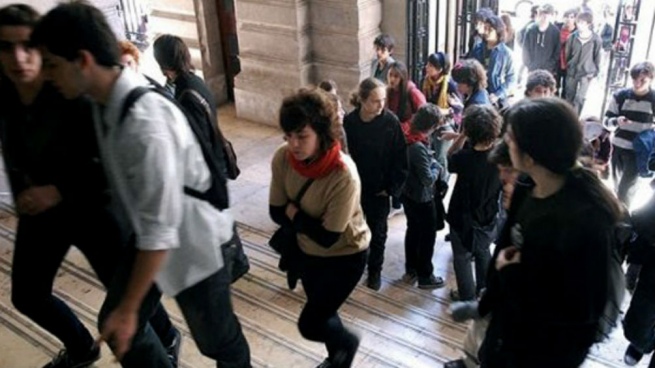Some 2,500 fifth-year students from public and private schools started a course on financial education, which will serve as a prelude to the mandatory plan for work practices in companies and social organizations launched by the management of Horacio Rodriguez Larretawhich received criticism from unions in the sector and from the Buenos Aires opposition forces.
They specified that the content of the course is focused on the axis of financial education “with its own and specific themes of the item, it seeks to provide different tools to plan, project or save money, to organize your personal finances and achieve a balance between expenses and income”.
And it is completed with the remaining focus on “employability skills”which is “related to the development of socio-emotional and digital techniques that contribute to or reinforce decision-making and the creation of a life project in line with the demands of today’s world”.
The course was designed “by an interdisciplinary team of experts on the subject”, with a total duration of 30 lecture hours, of which nine are taught in schools during school hours and the remaining 21 in extracurricular hours in different venues.
The mandatory program will cover a total of 29,400 children from 442 public and private educational establishments during 2022.
Soledad Acunathe head of the educational portfolio, said that since 2017, with the program High Schools of the Future, “we were convinced that boys and girls should have a first approach to the world of work before finishing school. Today, we also know that it is essential to complete the educational trajectories of students”.
The mandatory program will cover a total of 29,400 children from 442 public and private educational establishments during 2022.
For the Union of Education Workers (UTE), however, “the planning of this space was carried out in conjunction with companies and not with educational sectorsdemonstrating that the only interest is to introduce even more in the educational processes to the business sectors with the aim of fragmenting training and orienting it to the employability of these same companies”.
“Extremely serious is also the fact that it will be taught during school hours, but in charge of a team assigned by the ministry, with members of companies and foundations, without teaching staff”, they highlighted and expressed their rejection of “any reform without consultation that affects the general education of students and we reject the responsibility of the business sector in determining educational content”.
For her part, the legislator of the Front of All, Ophelia Fernandezalso questioned the measure when asking himself, in a post on networks, “educational practices or rather free work of minors in my friends’ companies.”
“The most absurd part of the educational reform begins that in 2017 we rejected student centers, teachers, families and rectors “he remembered.
And the legislator of the Left Front-Workers’ Party and union secretary of Ademys, Amanda Martinpointed out that “this proposal disqualifies education” and considered that “the relationship between theory and practice must occur in the educational field, under the direction of teachers and students.”


















